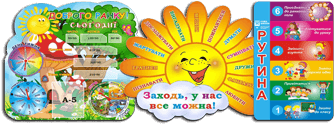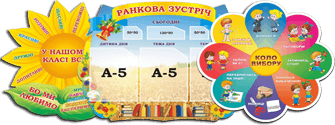Підсумковий урок для учнів 9 класу “CONDITIONAL SENTENCES”.
Автор: вчитель англійської мови Рудяк Наталія Іванівна
 Підсумковий урок по темі “CONDITIONAL SENTENCES” має на меті узагальнити граматичні навички учнів із вживання умовних речень та активізацію навичок аудіювання, діалогічного та монологічного мовлення по темі.
Підсумковий урок по темі “CONDITIONAL SENTENCES” має на меті узагальнити граматичні навички учнів із вживання умовних речень та активізацію навичок аудіювання, діалогічного та монологічного мовлення по темі.
Theme: Conditional Sentences.
Objectives:
- To systematize students’ knowledge on the topic “Conditional Sentences”;
- To control students’ skills in speaking ,reading , listening and writing ,using Conditionals;
- To expand students’ vocabulary;
- To teach students’ grammar skills’ using computer technologies;
- To provide students with information about way of life and behaviour of people abroad;
- To teach students responsibility for keeping famous places if interest clean, to find solution of the problem.
Equipment:
Pictures, grammar tables, “Intermediate Headway”, “ Upper Intermediate Headway “, a tape recorder, cassettes, a computer program “English Tutor”.
Хід уроку
- Oрганізаційний момент
Teacher: Good morning, dear students. We have a grammar lesson today. The theme of our lesson you’ll learn after you cope with the following task. Look at these pictures. Put the words under each picture in the right order to complete the sentences.
- It’s very hot, but…
put, the refrigerator, you, if, the ice-cream, into, melt, won’t, it.
- It’s a pity I can’t dance well, but…
well, I, could, dance, if, I alone, stand, wouldn’t, here/
- I told you to learn the poem yesterday. If…
you, a poem, yesterday, had learnt , you , a bad mark, have got , wouldn’t.
Student 1: It’s very hot, but if you put the ice cream into the refrigerator, it won’t melt.
Student 2: It’s a pity I can’t dance well, but if I could dance well, I wouldn’t stay here alone.
Student 3: I told you to learn the poem yesterday .If you had learnt the poem yesterday, you wouldn’t have got a bad mark.
Teacher: So, what is the theme of our lesson?
Student: I think the theme of our lesson is “Conditional Sentences”.
- Формування навичок усного монологічного і діалогічного мовлення учнів із вживання умовних речень. Активізація навичок аудіювання, читання. Автоматизація навичок вживання трьох умовних речень.
- Систематизація граматичного матеріалу.
Teacher: Right you are. Today we’ll recollect the grammar material about conditional sentences and test your knowledge. Now look at the blackboard. These situations represent three types of conditional sentences. You see three patters representing three types of conditional.
Present Indefinite Tense+ Future Indefinite Tense
Past Indefinite Tense+ Conditional
would + V1
Past Perfect Tense+ Conditional Perfect
would + Present Perfect
Arrange these patters according to the situations. So what type of conditional sentence does the first pattern belong to?
Student: The first pattern belongs to the first type of conditionals.
Teacher: What tenses are used here?
Student: The Present Indefinite is used in the subordinate clause and the Future Indefinite is used in the principal clause.
Teacher: What type of conditional does this pattern represent? etc.
Teacher: I think these patterns will be useful for you during our lesson.
- Формування навичок діалогічного мовлення учнів.
- a) Вживання граматичних форм дієслів у діалозі.
Teacher: Open your ”Intermediate Headway” books at page 76. You see the dialogue between a boy whose name is Jim and his mother. The boy is going to travel round the world and his mother is worried, of course. Your task is to put the words from the box in the gaps. You may take your pens and write all the necessary words on the sheets of paper. (Для зручності кожний учень має надрукований діалог).
| Will you do | Won`t get | ‘ll be | ‘ll get |
| ‘ll ask | Won`t do | get | ‘ll be |
Mum: Oh, dear! I hope everything will be all right. You`ve never been abroad before.
Jim: Don`t worry, Mum. I… OK. I can look after myself. Anyway, I … with Anthony. We… anything stupid.
Mum: But what … if you run out of money?
Jim: We… a job, of course!
Mum: Oh. What about if you get lost?
Jim: Mum! If we… lost, we…someone the way, but we… lost because we Know where we are going!
Mum: Oh! But what if …?
Teacher: Are you ready? Let`s practise the dialogue.
(2 учні читають діалог)
- b) Прослуховування діалогу.
Teacher: Does anybody have another variant? Do you want to listen to their conversation to check yourselves? (Tapescript 53a “Intermediate Headway”)
- c) Складання учнями власного діалогу.
Teacher: Imagine that one of you is going travel round the world too. Who wants to be a tourist. Oleh, come here. All your classmates are very worried. What are the things you are worried about? You may use exercise 2 at page 77. -get food poisoning -don`t like the food
-lose your passport -get sunburnt
-are homesick -don`t understand the language
-are mugged -don`t get on with your friend
-meet a girl who fall in love with
Student1: Oleh, what will you do if you get food poisoning?
Student2: If I get food poisoning, I`ll have to go to the doctor, etc.
Teacher: I think that Oleh will be able to overcome all the troubles if he goes abroad.
Teacher: Now let`s sum up. What type of conditional have we used in the situations?
Studen3: We`ve used the first type of conditionals.
Teacher: Why is it used here?
Student4: It expresses real or probable situations in the present or future.
- Контроль навичок усного мовлення учнів.
Teacher: I`m sure all of you would like to travel around the world. Where would you go if you have an opportunity?
(Перевірка домашнього завдання. Учні розповідають де б вони хотіли побувати, використовуючи картинки, фотографії).
Student1: If I had time and money, I would go to Paris. If I went to Paris, I would see the Eiffel Tower. It was designed by Gustav Eiffel for the 1889 World Fair. It is visited by millions of people every year and three top museums in Paris. If I were interested in art oh the 20 century, I would go to Pompidour Center. If I were interested in pre-nineteenth century art, I would visit the Musee d`Orsay. But if I had the opportunity to visit only one museum, I would choose without hesitation the Louvre. The Louvre was a royal palace for 300 years. If I were in the Louvre, I would be able to see such masterpieces as the Venus de Milo, the Mona Lisa and the Winged Victory. If I had the opportunity to visit Pere Lachaise cemetery, I would see the tombs of Chopin, Sarah Bernhardt, Oscar Wilde. I would finish my excursion around Paris visiting Notre Dame Cathedral, etc.
d)Робота з таблицею.
Teacher: I wish your dreams come true. But there are a lot of other interesting places in the world. Look at the table. Tell me what you would see or do if you were in these countries.
Holland visit the pyramids
Norway drive through the Grand Canyon
Egypt sunbathe on Copacobana beach
Kenya see the midnight sun
India see the tulips
China take photos of the lions
USA watch Flamenco dancing
Rio visit the Taj Mahal
Spain walk along the Great Wall
4.Контроль навичок аудіювання.
Teacher: As you see there are a lot of interesting places in the world and may be you’ll see some of them. But if you visit any country, you’ll communicate with it’s people, that’s why you’ll have to learn their customs, traditions, way of life. Now you will hear two young girls describe how they entertain guests in their countries- Japan and Spain. Listen and take notes under the following headings:
-the time of invitation;
-the presents that people take;
-the food and drinks served.
(Typescripts 29 “Intermediate Headway”)
(Кожний учень має перед собою надруковану табличку ,яку він заповнює під час прослухування)
| Country | time | presents | food |
| Japan | |||
| Spain |
Teacher: Tell me when you would go to your friends if you were in Japan.
Student: If I were in Japan, I would go to my friends at 7 o’clock in the evening.
Teacher: And what about Spain?
Student: If I were in Spain, I would be invited late in the evening, at 8.30 or 9.
Teacher: What would the hostess cook if I you were in Japan etc.
Teacher: How would you entertain guests in Ukraine?
Student: If I invited guests, I would ask them to come in the afternoon , at about 2 o’clock .My mother would cook traditional Ukrainian meals. It would be a fun, relaxed way of getting together with friends.
Teacher: I’m sure if you invited people to your house, they would be pleased. So, what kind of conditionals have we used in the situations?
Student: We’ve used the second type of conditionals.
Teacher: Why is it used here?
Student: It is used to express imaginary or impossible situations in present or future.
5.Контроль навичок читання та непідготовленого усного висловлювання на основі прочитаного тексту.
Teacher: It’s very exciting to travel, to visit different countries, but there is a great problem nowadays .Tourism destroys the places that tourists want to visit and the culture and way of life they want to experience. You’ll read the text where you’ll find a lot of such examples. Open your Upper Intermediate Headway at page 20.You’ll read the text under the heading “Tourism Today” and then we’ll discuss what problems wouldn’t have been existed if there had not been so many tourists.
Are you ready? What can you say about the problems connected with tourists?
Student 1: The Mediterranean wouldn’t have been the dirtiest sea in the world if so many tourists hadn’t visited it.
Student 2: If the prehistoric cave paintings at Lascaux in France had not been ruined by the breath and bacteria from 200 000 visitors a year, the caves wouldn’t have been closed, etc.
Teacher: What type of conditionals have we used in the situation?
Student: We’ve used the third type of conditionals.
Teacher: Why is it used here?
Student: It is used to express unreal condition in the past .
6.Домашнє завдання.
Teacher: As you see from the text we have a very serious problem. If our generation can’t solve it, may be you’ll be more successful. Your homework will be to think of the way how to solve this urgent problem (using conditionals).Besides you know that some people travel not for pleasure. They discover and explore new lands. You have the text under the title “Polar Test” about a famous British explorer Robin Drake. You’ll read it at home and write into your copybooks. (додаток 1)
7.Фізхвилинка.
Автоматизація навичок вживання трьох типів умовних речень.
Teacher: We’ve recollected three types of conditional sentences and you’ll have the following task. Some of you will get their endings .Find each other and read your sentences. (додаток 2)
8.Комп’ютерне тестування учнів з теми “Умовні речення трьох типів”
Teacher: Now I see that you can use three types of conditional sentences ant I think it will be easy for you to cope with the computer program “English Tutor”. You have to use the proper tense from either in the subordinate or in the principal clauses of conditionals. Green colour will indicate the correct variant. You’ll see red colour if your sentence is wrong.
3.Підсумки уроку.











Підсумковий урок по темі “CONDITIONAL SENTENCES” допоможе узагальнити граматичні навички учнів із вживання умовних речень та активізацію навичок аудіювання, діалогічного та монологічного мовлення по темі.Чудово розроблені вправи.